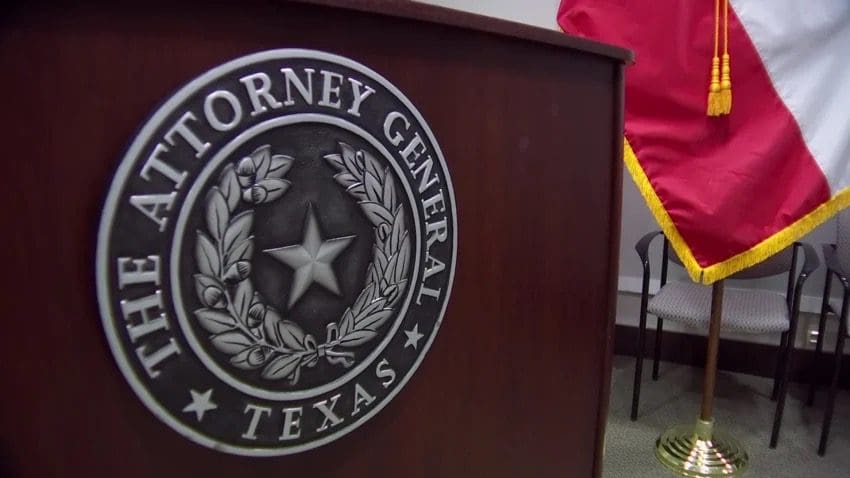A Texas House committee is considering legislation that would erode protections for Texans exercising their right to free speech.
On Wednesday, the House Committee on the Judiciary and Civil Jurisprudence held a hearing on Senate Bill 896 by State Sen. Bryan Hughes (R-Mineola), which would change key components of a law known as the Texas Citizens Participation Act that protects an individual’s right to express his opinion about public officials or matters of public concern.
The TCPA is a defense against SLAPP lawsuits, or “strategic lawsuits against public participation,” by allowing an individual sued for defamation or accused of interfering with someone else’s rights to file a motion to dismiss the lawsuit on the grounds that it is intended to intimidate or silence the individual. When an anti-SLAPP motion to dismiss is filed, all legal proceedings such as discovery must stop until the court has ruled on the motion and any appeals of the ruling have been resolved.
Enacted in 2011, the TCPA has been amended in 2013 and 2019 to clarify and narrow the scope of the law to provide certain exemptions to its application, such as in cases involving trade secrets, evictions, and legal proceedings pertaining to family issues like divorce, child custody, and protective orders. These changes were made to prevent the abuse of the anti-SLAPP motion by defendants using it as a delay tactic or an attempt to avoid a trial on the claims brought against them.
Receiving a unanimous vote in the Senate, SB 896 would remove the automatic stay if the court denies the anti-SLAPP motion to dismiss because it was determined to be frivolous, and it would extend the stay for 45 days if the court determines it was not filed on time or the case pertains to a situation exempt from the TCPA’s application.
In introducing a revised version of the bill, State Rep. Jeff Leach (R-Allen) said the TCPA “was originally designed to be a shield [but] has in many cases become an unwieldy and abusive sword.” Nevertheless, he said it “is one of the strongest and most reliable [citizens participation acts] in the entire country,” and he promised he would “not support any bill that weakens the First Amendment protections to freedom of speech, association, or petition.” He explained he hopes to correct “some very real problems and concerns while still preserving and safeguarding the intent and the strength of the Texas Citizens Participation Act.”
21 witnesses signed up to testify on the legislation, including representatives from several advocacy groups and trade organizations.
The highlight of the hearing was an exchange between Arif Panju of the Institute for Justice and Shahmeer Halepota, a Houston-based commercial trial lawyer.
Panju argued that a SLAPP suit is “the bending of the power of the court against an individual to silence them, to drain them of their resources, and make them shut up.” To illustrate the importance of the statute, he recounted a case litigated before the enactment of the TCPA in which a developer in Dallas sued a journalist for defamation after she published a book about the developer’s use of eminent domain to acquire land owned by a Freeport shrimping company to build a marina.
“The stay is the ‘anti’ in the anti-SLAPP,” he explained. “It’s what protects. It’s the shield that Chairman Leach referenced. It’s true that sometimes litigants think it’s used as a sword. But ultimately, the statute is not a rule of procedure, it’s a protective shield.”
He added that “those that can afford big firms that like to litigate a lot in courts often will try to water down anti-SLAPP statutes.”
Halepota, on the other hand, said concerns about a potential increase in rulings denying anti-SLAPP motions as frivolous are “hypothesized hyperbole.” He argued the TCPA is currently being abused, citing the example of a developer his firm is representing whose legal dispute with a contractor was prolonged a year and a half when a stay was issued following an anti-SLAPP motion to dismiss, causing the developer to lose “millions of dollars.”
“We need to stop the sword element of this statute,” he said, adding that “anyone legitimately expressing a free speech interest should be able to pass the low threshold of frivolousness.”
Panju countered that “the burden shouldn’t be on that person who enjoys a shield under the statute,” saying “it’s the plaintiff that needs to make the case to the appellate court.”
State Rep. Cody Vasut (R-Angleton) suggested limiting the removal of the stay to cases in which a judge rules that the anti-SLAPP motion is frivolous, and he asked if requiring an appellate court to review such a motion within 30 or 45 days would be an acceptable compromise.
Panju agreed that either revision would improve the proposed legislation.
Tony McDonald, a Central Texas attorney specializing in First Amendment issues, also expressed concern that the legislation would have “a lot of unintended consequences.” He explained that lifting the stay after an anti-SLAPP motion to dismiss is denied—either immediately or after 45 days—is “creating a situation where there is no adequate remedy on appeal” because “it takes years sometimes to get an opinion out of a court of appeals,” during which time “abusive litigation” against the defendant could proceed.
“If you’re going to do something here, you should go to the court of appeals and give them the authority to lift the stay,” he argued. Currently, appellate courts are not authorized to life a stay of the trial court proceedings.
Among the other witnesses were representatives for Texans for Lawsuit Reform, the Texas Association of Business, the Texas Association of Broadcasters, and the Texas Press Association.
Lee Parsley of Texans for Lawsuit Reform argued that the bill would be an effective tool to “balance constitutional rights,” namely those of free speech and trial by jury.
Glenn Hammer of the Texas Association of Business said that while his organization “will continue to vigorously support First Amendment rights,” he believes SB 896 “provides much needed guardrails to help prevent misuses of the TCPA going forward and protects the state’s business-friendly litigation environment that Texas is proudly known for.”
Marc Fuller, testifying on behalf of the Texas Association of Broadcasters, said the bill would “dramatically increase findings of frivolousness” because they “will effectively immunize the trial court’s order denying the motion to dismiss from any meaningful appellate review.”
Donnis Baggett of the Texas Press Association said his organization is “concerned that this bill would weaken what is now a strong anti-SLAPP bill or statute in Texas law, one that has become a model for other states.” He explained that most of the 400 newspapers in Texas are small newspapers and “do not have deep pockets,” and “if you bleed a small newspaper dry,” the local community is “not only going to lose coverage of high school sports, they’re going to lose coverage of the civic life. That community, they’re going to lose the accountability element that a newspaper brings to the coverage of small town governments. That’s not something you want to happen in Texas.”
The bill was left pending at the conclusion of the hearing. If the House passes the revised legislation, the Senate would have to agree to any changes before it can go to the governor’s desk.
The current legislative session ends May 29.





